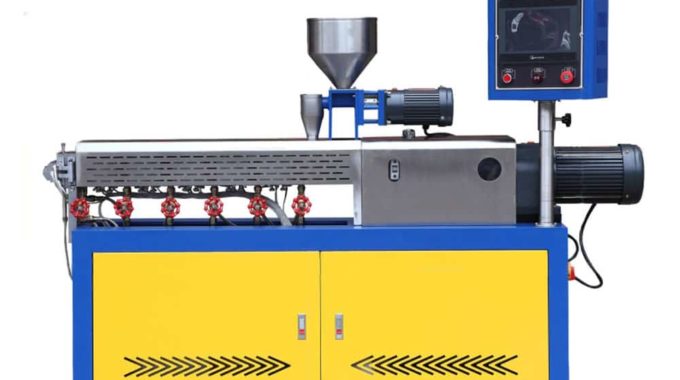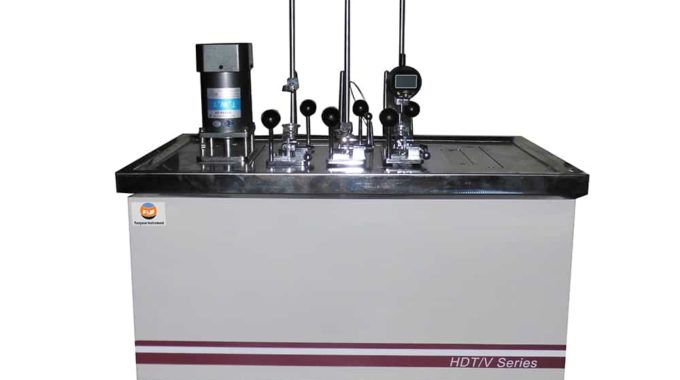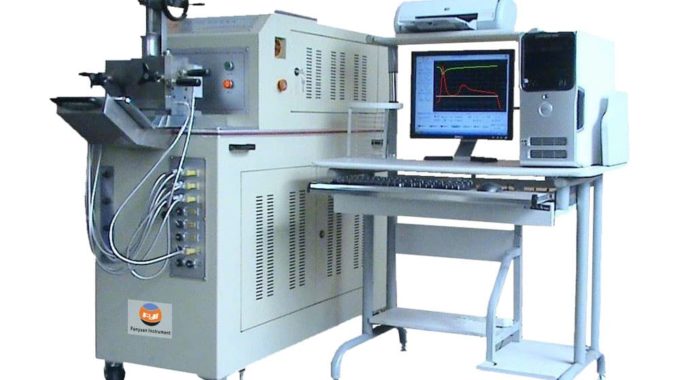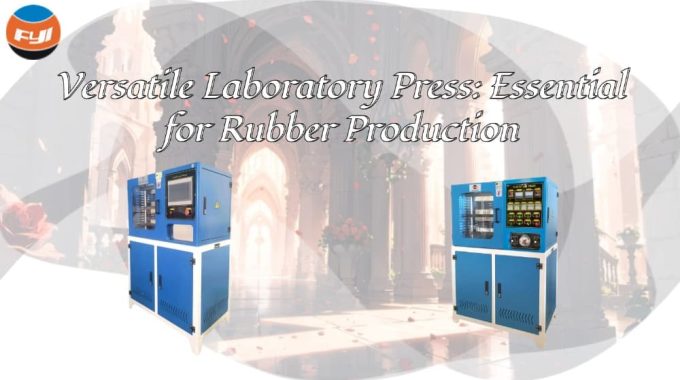
Versatile Laboratory Presses: Essential for Rubber Production
Laboratory presses play a vital role in the production process in the rubber industry. These presses are used for a variety of purposes including rubber vulcanization and testing. Understanding the function of a laboratory press is essential to ensure efficient production and maintain product quality.
Contents
Working principle
The working principle of a laboratory press can be divided into four parts.
1. Heating: Put the raw material (such as rubber) into the laboratory press, and then heat it to a certain temperature to soften and melt it.
2. Compression: The pressure mechanism of the laboratory press begins to work, compressing the softened and melted raw materials.
3. Vulcanization: At a certain time and temperature, the vulcanizing agent in the material begins to react chemically with the rubber and other materials, thereby completing the vulcanization process, that is, the cross-linking and vulcanization of the rubber.
4. Cooling: After the vulcanization process is completed, the vulcanized material is cooled to below room temperature, then taken out and processed in the subsequent process.
Function of laboratory presses
Vulcanization function
Laboratory press is a kind of equipment used for vulcanization of rubber, plastic, fiber and other materials. It combines the sulfur in the material with the double bonds in the raw material through heating and pressure, so that the raw material has a more stable structure and performance. Laboratory press is mainly divided into two types: heating vulcanization and electronic vulcanization. Heating vulcanization is mainly used for rubber vulcanization, while electronic vulcanization is suitable for the vulcanization of plastics and fibers.
Pre-processing function
Laboratory presses can also perform pre-processing, which uses pressure during heating and vulcanization to mix raw materials more evenly, thereby improving product quality and production efficiency. The pre-processing function can be widely used in the production and processing of various materials such as rubber, plastics, and fibers.
Degumming function
The laboratory press can also be used for degumming by heating and steaming. In some production processes, the rubber juice in the rubber cannot be completely processed, and degumming is required to remove the rubber juice residue in order to obtain a purer rubber.
Indentation function
The laboratory press can also perform embossing, which can achieve different embossing effects by setting different pressures, temperatures and times. Creasing refers to placing materials such as cloth, leather, rubber under the pressure of a laboratory press for shaping and embossing to give them a better appearance and quality.
In summary, laboratory presses have multiple functions. They can not only realize the vulcanization of rubber, plastic, fiber and other materials, but also perform various processes such as pre-processing, degumming and indentation. The realization methods and functions of these functions are different, but they all play an important role in product quality and production efficiency.
Uses of laboratory presses
Laboratory presses are mainly used for vulcanization of rubber products, plastic products and other materials at a certain temperature, so that their physical properties, chemical properties and mechanical properties are comprehensively improved. Its main application areas include:
1. Rubber product processing
It can be used in the production and processing of rubber and its products, such as rubber tubes, rubber sheets, rubber seals, rubber discs, etc.
2. Plastic product processing
It can be used in the production and processing of plastics and their products, such as plastic films, plastic rods, plastic tubes, plastic sheets, etc.
3. Vulcanization of other materials
It can also be used for the vulcanization of other materials, such as adhesives, resins, adhesives, coatings, cosmetics, etc.
Advantages
Laboratory presses are mainly used to produce rubber products. Vulcanization is a key link in the entire production process of rubber. The flat heating method of the laboratory press allows the rubber to maintain a uniform temperature distribution during the vulcanization process, which is essential to ensure the quality and consistency of rubber products. The high-precision control and automated operation of the laboratory press make the production process more efficient, reduce manual intervention, and reduce production costs.
Laboratory presses play an important role in laboratory research and product development. In a laboratory environment, researchers can quickly and flexibly test the performance of rubber products under different formulations and processes. The high temperature, high pressure and rapid vulcanization characteristics of the laboratory press enable researchers to complete complex vulcanization processes in a short time, greatly improving experimental efficiency. At the same time, the laboratory press has a high degree of automation and can automatically record and transmit data, which facilitates data analysis and trend prediction.
The environmental performance of the laboratory press is also an important aspect of its application. Compared with the steam heating method of the traditional laboratory press, the new laboratory press uses electric heating, which is not only energy-saving and efficient, but also reduces exhaust gas and noise pollution.
Summarize
Understanding the functions of a laboratory press is essential to ensure the efficiency of the production process. Laboratory presses like the DW5150A/DW5150B play a key role in the rubber vulcanization process.
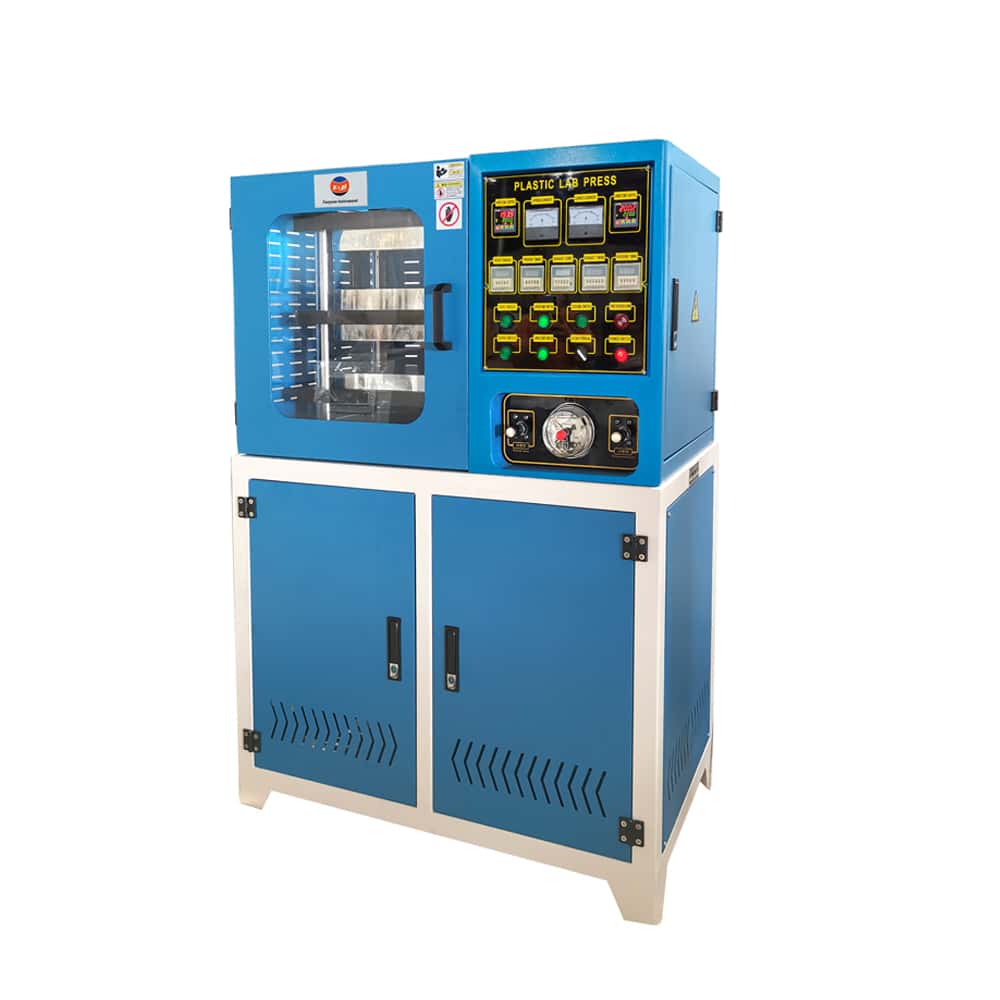
We always adhere to the principle of quality as the first priority, strictly control every link in the production process, use high-quality materials and advanced technology to ensure the stability and durability of the products. Over the past few decades, we have been manufacturing products in accordance with world standards and regulations such as ISO, ASTM, DIN, EN, GB, BS, JIS, AATCC, and customizing products with specific specifications and functions according to customer requirements. We believe that only by providing excellent quality can we win the trust of customers and achieve long-term cooperation. After unremitting efforts, our technical strength and quality have been recognized by many national laboratories and have won a good reputation among global customers and peers. In the future, FYI will continue to improve the quality of products and services to adapt to new changes in the market.
